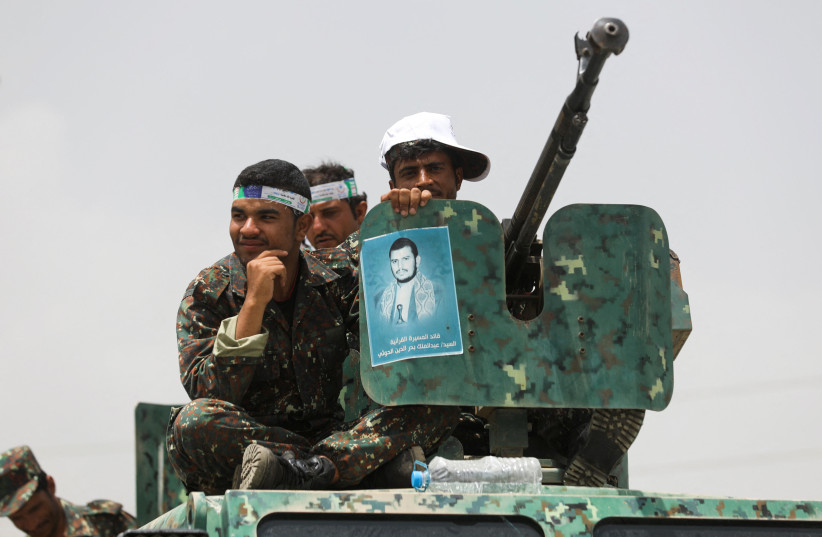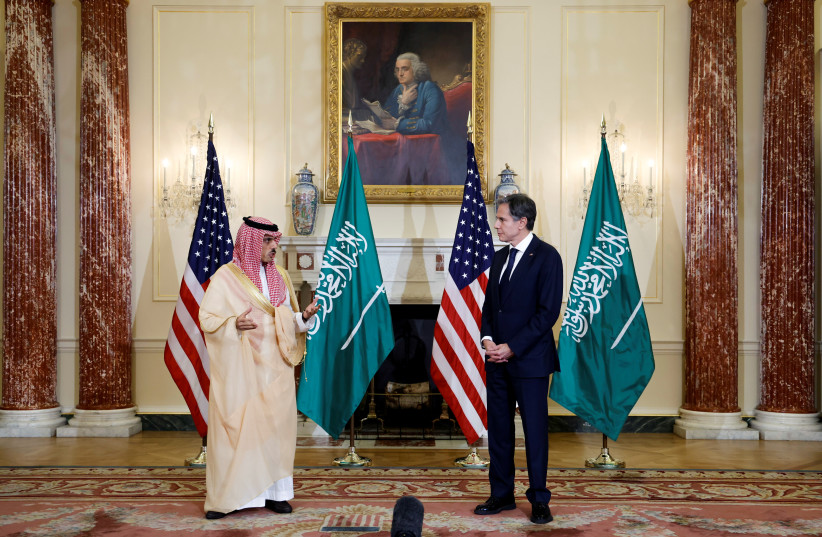Key US officials have recently reached out to Saudi Arabia in the wake of the kingdom's reconciliation with Iran. While the US has not objected openly to the reconciliation, clearly the moves by the Kingdom are causing some concern in Washington and also raising eyebrows.
This isn’t new. The Saudi-US relationship has been complicated over the last decade, a relationship strained by the Iran deal and also by the Gulf crisis with Qatar and other issues.
There are key questions about what the US-Saudi discussions will focus on and how this will play out in the coming months.
Can Saudi Arabia, Iran and the Houthis end the war in Yemen?
First is the main issue of the Yemen war, which has been highlighted in media accounts. Can Saudi Arabia, Iran, the Iran-backed Houthis and Yemen government forces end the conflict?
Hopeful signs from meetings in Oman seem to point to a possibility. But how will Yemen ever stop being partitioned between the rival forces? That remains unclear. The Houthis still threaten the region, including with long-range missiles, drones and also threats they have that can be used at sea.

How will Iran's ties to Saudi Arabia affect Syria, China and Russia?
Another issue is how Iran-Saudi ties may affect Syria. Iran wants the US to leave Syria. Russia wants the Syrian regime to reconcile with Turkey. Iran also wants to use Syria as a platform to threaten Israel. If Syria is invited back to the Arab League, is it possible the way that Iran exploits the vacuum of power in parts of Syria will shift?
A third issue is a question of how Saudi maintains ties with China and Russia, and also how it views Israel. There is much work to be done on building on the Abraham Accords, however, it appears some of that work has stalled. A shift with Saudi Arabia in which it reconciles more with Iran could have repercussions.
In addition, if the US can’t find a way to patch up the tensions with Riyadh then there could be more movement from Riyadh on its independent policy of shifting its focus towards China and Russia.
US policymakers are aware of the narrative that sees Saudi Arabia drifting away from the West and doing its own independent policy. This is also not entirely new, Riyadh always had its own policies and was never anchored in the West. However, a lot has changed recently.
US-Iran tensions have grown and Iran is supplying Russia with drones for use in Ukraine. US-China tensions are also growing. Riyadh is indicating that it is not always on the same page as Washington. This comes at a difficult time for America’s role in the region because there are also concerns about Egypt-Russia ties and also Turkey has drifted away from being a positive player in NATO.
In short, all the key US partners and allies in the region now have issues that separate them from key US policy goals. Qatar, for instance, hosted the Taliban. The UAE is often critiqued in US media. Israel has been pressured to support Ukraine more. Turkey just carried out a drone strike near a vehicle carrying US personnel and US-backed SDF leader Mazlum Abdi while he was in Sulimaniyeh in Iraq.
According to the White House, National Security Advisor Jake Sullivan spoke with Crown Prince and Prime Minister Mohammed bin Salman of Saudi Arabia on April 11. “They discussed a number of global and regional matters, including ongoing diplomacy related to ending the war in Yemen. Sullivan highlighted the remarkable progress in Yemen over the past year, during which fighting has nearly ceased under an UN-mediated truce. He welcomed Saudi Arabia’s extraordinary efforts to pursue a more comprehensive roadmap for ending the war and offered full US support for those efforts, noting that Special Envoy Tim Lenderking will be in the region over the coming days.”
The US said that it continues to try to maintain deterrence against threats from Iran and the US is committed to ensuring Iran does not acquire nuclear weapons.
In the first week of April CIA Director William Burns made an unannounced visit to Saudi Arabia. “Director Burns traveled to Saudi Arabia where he met with intelligence counterparts and country leaders on issues of shared interest. The Director reinforced our commitment to intelligence cooperation especially in areas such as counterterrorism,” a US official told CNN. Another report in the Wall Street Journal indicated the US was displeased with the reconciliation with Iran, which was brokered by China.

In contrast, in mid-March, US Secretary of State Antony Blinken expressed a more positive note in public about the reconciliation. “If this agreement actually bears out, and particularly if Iran follows through on the commitments that it’s apparently made, again, that would be positive,” Blinken said while on a visit to Ethiopia.
Key Arabic language media are focusing on the discussions between the US and Saudi Arabia. The pro-Iranian AL-Mayadeen reported on the meetings as did media in the Gulf. US Senator Lindsey Graham also praised the Saudi Crown Prince after a recent meeting, a fact that Al-Arabiya highlighted in its report.
